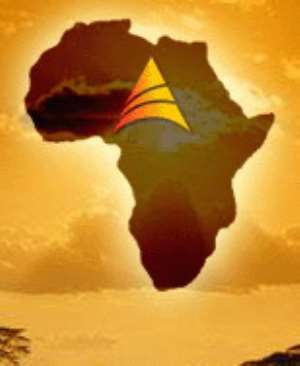
The dictionary definition of independence can be misleading if applied strictly to nations. Historically, no nation or state has ever been completely independent without any kind of support from somewhere. Instead, interdependency has been the way of existence since time immemorial. On that basis, Africa is as independent its any other country in the world.
Currently, developed as well as developing countries depend on each other to some extent in a variety of ways. For example, developed countries continue to depend heavily on Africa for its raw materials needed for the development of their technology and industries. Africa, on the other hand, depends on developed countries for their industrial products and finance.
The problem is that the inter-dependency between Africa and developed countries is unbalanced. It weighs heavily against the interest of Africa and in favour of the developed world.
This unhealthy situation has arisen because the Europeans and the Americans made the rules of the current world order and forced them on Africa. Examples of this are the rules of the World Trade Organisation, the IMF and the World Bank which are designed for wealth creation for the developed world and not for Africa.
It can also be said with sadness that African leaders played into European hands by copying the exact model of the European way of life. By doing so, Africa has continued the process of colonial master and servant situation. This in turn has devalued the meaning and sacredness of Africa's independent status.
Poverty is not the only factor that has undermined African independence. Bad governance, corruption, inefficient leadership, bad economic policies based on the quick-fix ideology and the lack of emphasis on Africanisation are some of the major causative factors.
THE WAY OUT
* African leaders have to take stock and change their settled opinion of defeatism that says "there is no alternative (TINA)" but to depend on Western handouts. Africa needs good leaders with political will, it needs good governance, it needs to focus on the development of Africanisation programmes designed to meet the needs of the African people instead of individual African ministers and their families, and the interests of Western countries and financial institutions. The Africanisation policy should aim at an education model that is genuinely African to promote African culture, religion, language, and to restructure our state institutions to be more inclusive of the people in line with African democracy.
* Development programmes should not be based on the quick-fix approach. They must be gradual and appropriate to the needs of the people and according to the available manpower and material resources.
* African countries must co-operate in sharing development ventures, encourage and increase research in support of local inventions and innovations particularly in solar energy and improved agricultural production.
* Regional development should include removal of all colonial boundaries to encourage free trade and free movement of people and goods across the continent. Transportation and good communication systems are essential for the development of tourism. We need a new working practice, a new taxation system and a new pay structure across the continent to reduce the brain drain and attract Africans in the Diaspora home to work.
*We need a strong continental army to protect both our people and our vast natural resources that are currently being stolen and abused by forces from outside the continent.




 We’ll protect state wealth from opaque deals – Prof Jane Naana
We’ll protect state wealth from opaque deals – Prof Jane Naana
 Mauritania president says running for second term in June polls
Mauritania president says running for second term in June polls
 I won't ever say I was a mere driver’s mate' — Prof. Opoku-Agyemang
I won't ever say I was a mere driver’s mate' — Prof. Opoku-Agyemang
 2024 polls: 'EC struggling to defend credibility'— Prof. Opoku-Agyemang
2024 polls: 'EC struggling to defend credibility'— Prof. Opoku-Agyemang
 Akufo-Addo gov't's 'greed, unbridled arrogance, unrestrained impunity, sheer dis...
Akufo-Addo gov't's 'greed, unbridled arrogance, unrestrained impunity, sheer dis...
 Election 2024: Ghana needs an urgent reset, a leadership that is inspiring – Ma...
Election 2024: Ghana needs an urgent reset, a leadership that is inspiring – Ma...
 Partner NDC to rollout a future of limitless prospects – Prof Jane Naana Opoku-A...
Partner NDC to rollout a future of limitless prospects – Prof Jane Naana Opoku-A...
 NPP will remain in gov’t till Jesus comes — Diana Asamoah
NPP will remain in gov’t till Jesus comes — Diana Asamoah
 Sunyani Technical University demands apology from former SRC president over sex-...
Sunyani Technical University demands apology from former SRC president over sex-...
 'Dumsor' was resolved by Mahama but ‘incompetent' Akufo-Addo has destroyed the g...
'Dumsor' was resolved by Mahama but ‘incompetent' Akufo-Addo has destroyed the g...
